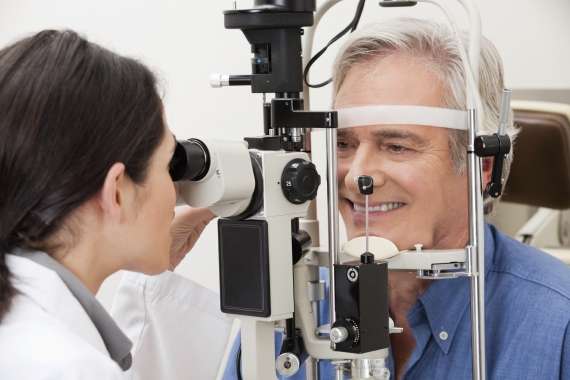Cataracts and Diabetes
Diabetes increases the risk of eye problems. In fact, according to the American Diabetes Association, people who are diabetic are 60% more likely to develop cataracts than non-diabetics and are likely to develop them at a younger age. Elmquist Eye Group provides safe and effective treatment for cataracts and other conditions that affect diabetics long before you become aware of any symptoms.
Trevor Elmquist, DO, is board certified by the American Board of Ophthalmology and is cataract specialist. He has been selected as one of America’s Top Doctors in ophthalmology by Castle Connolly Medical Ltd., and has been providing exceptional eye care to the residents of Cape Coral, Fort Myers and throughout Southwest Florida for over 25 years.
Dr. Kate Wagner, his partner, and Dr. Nina Burt, his associate, are board certified optometrists. No matter what type of concern you may have about your eyes, our talented Elmquist Eye Group team offers a full range of vision care, from routine exams for glasses to bladeless laser-assisted cataract surgery.
Does Diabetes Cause Cataracts?
 Diabetes can cause complications that affect your eyes in a number of ways. One of those complications is the development of cataracts.
Diabetes can cause complications that affect your eyes in a number of ways. One of those complications is the development of cataracts.
A cataract is a gradual thickening of the normally clear crystalline lens of your eye that causes it to become cloudy, preventing light from reaching the retina. A cataract will cause your vision to become blurry or dim.
This very common eye condition often develops as we age, but diabetes can speed up the formation of cataracts. Constant fluctuations in blood sugars can accelerate the clouding of the normally clear lens and cause them to occur at an earlier age.
Diabetes and Cataract Surgery
A cataract cannot be removed from the lens. Instead, the lens has to be replaced with an artificial lens, called an intraocular lens or IOL, during cataract surgery. However, uncontrolled blood sugar can affect the success of the surgery. The risks include:
- Diabetes can limit the immune system’s ability to fight off infection after cataract surgery.
- Diabetes can increase intraocular pressure, making the selection of the correct intraocular lens prescription more challenging.
- Uncontrolled diabetes can lead to diabetic retinopathy and macular edema, increasing the risk of post-surgery complications.
- High blood sugar can slow the healing process and prolong recovery times.
Although all surgeries have risks, cataract surgery is one of the safest surgeries performed in the U.S. today. Elmquist Eye Group offers bladeless laser-assisted cataract surgery which is designed to make the procedure even more precise, safe and accurate. Maintaining good control of your blood sugar levels will help to reduce your risks and increase the likelihood of successful surgery.
Cataracts can develop in one eye or both eyes, but they do not spread from one eye to the other. If Dr. Elmquist determines that a cataract is the cause of your vision problems, nothing needs to be done until you feel that it is affecting the quality of your life.
Don’t let diabetes steal your vision. If you have questions about cataracts or need an experienced cataract surgeon in Cape Coral, Fort Myers, or elsewhere in Lee County, you can count on Elmquist Eye Group to provide the highest level of care. Call us today at (239) 936-2020 for an appointment.
